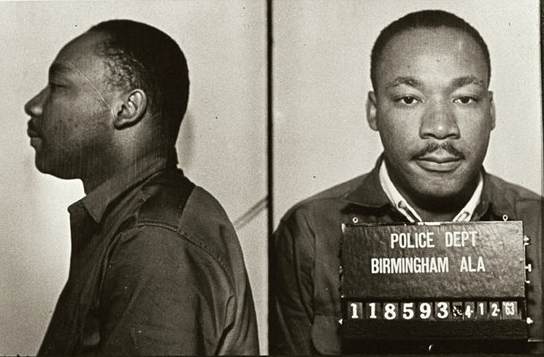Martin Luther King’s “Letter from a Birmingham Jail” still stands as one of the most persuasive pieces for the cause of desegregation. Its rhetoric still has power today, with memorable phrases like “justice too long delayed is justice denied” and “Human progress never rolls in on wheels of inevitability.” But the heart of his argument — that man-made laws are just only if based on the moral law — conflicts with modern denial of a “moral law.” For man today, morality is seen as cultural or emotional or utilitarian; “moral law” is the leftover of outdated religion. But if this central pillar is removed, the force of King’s “Letter” collapses.
When Dr. King demonstrated in Birmingham, local clergy criticized his involvement as an “outsider” in activism they considered “unwise and untimely.” “Untimely,” because they were hopeful of a gradual integration for blacks in society; “unwise” because King’s followers were breaking the law by “parading without a permit,” a permit denied by the segregationist establishment. King points out that American blacks are tired of being told “Wait.” (Indeed, King’s later book about the Birmingham demonstrations was entitled Why We Can’t Wait). Blacks have suffered lynchings, bombings, police brutality, voter intimidation and constant social humiliation. His activism is not “untimely.”
This content, as well as dozens of other articles and resources, are available to our member schools and educators.
Click here to learn about becoming a member.
Existing members log in here:

